On February 1, 2013, Hiroshima University established two new programs: the “Distinguished Professors” (DP) program and the “Distinguished Researchers” (DR) program. Individuals who are part of these programs are recognized as senior and junior faculty members respectively, who are engaged in extraordinarily distinguished research activities.
A Conversation with Distinguished Professor Yoshitsugu Kojima
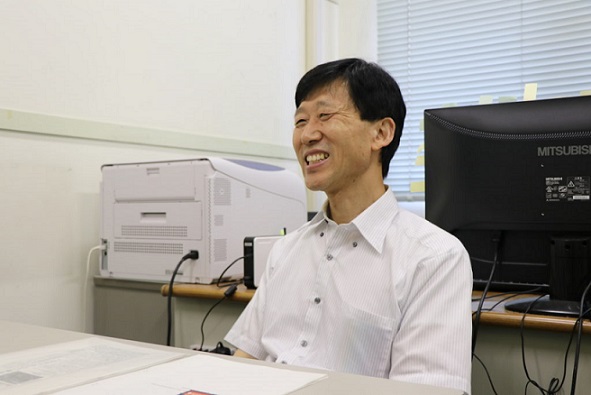
Can you tell me your name and specialist field?
My field is materials science, especially focused on energy storage. This means researching mainly about the element, hydrogen, but recently I focused on ammonia. Many scientists focus on a specific material, but I research everything about hydrogen-storage materials. The point of my research is to find the good hydrogen storage materials.
I think the best hydrogen storage material is ammonia (NH4). 78% of air is nitrogen so it is easy to get it. We even release a small amount of ammonia from our body!
What is its practical purpose?
I'm interested in materials that generate energy. The Chugoku Electric Power Co., Inc., a local electricity provider, focuses on anmonia as a fuel for electricity. By mixing it with coal, CO2 emissions are reduced. In the future it can be a sustainable fuel but now it is made by burning coal.
I am also looking at a new method of hydrogen synthesis using water. This is very important, I think. I am looking at energy storage, but we must also think about energy transportation methods since Japan has little fossil fuels so must import its fuel.
Can you tell me about your background, how did you get into this field of work?
I wanted to become a researcher when I was young. In the old days, I was interested in making new things. In university, I researched polymer chemistry. Now there are a lot of polymeric materials synthesized in the world, like polyvinyl chloride (PVC) and polyethylene terephthalate (PET). There is a problem when producing these polymers as it creates pollution and they are all based on oil. So, I thought that energy was more interesting!
Lots of things in Japan are imported, manufactured here and then exported. We need new things that are different from other countries so we can produce them here.
What is the best thing about your research work?
I have travelled lots of places in the world and talked to many interesting people. I have managed to convince some people that ammonia is a very good hydrogen carrier!
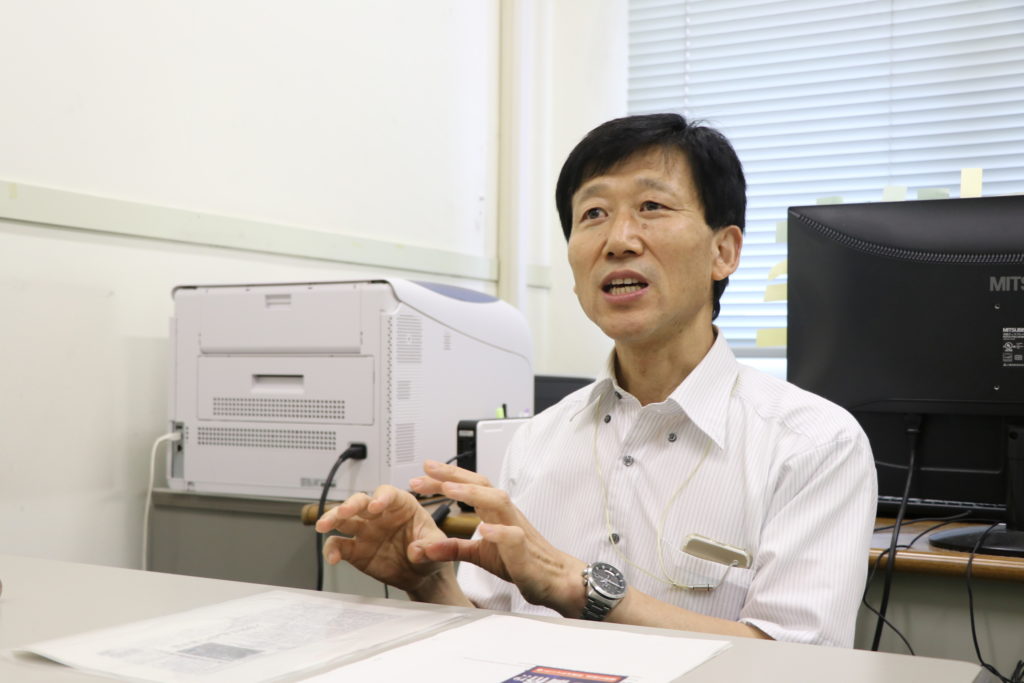
What are the challenges of your work?
It's always a big challenge in research! Also, in Japan it is culturally very important to have harmony. Sometimes to research new things many kinds of conservative-thinking people don't want to disrupt this harmony so sometimes things can take longer.
What are you most proud of?
I have been researching for a long time, I have learned many things and have a wide range of knowledge in different areas. Also, I have published over 200 papers, some of which are highly cited, and filed over 140 patents.
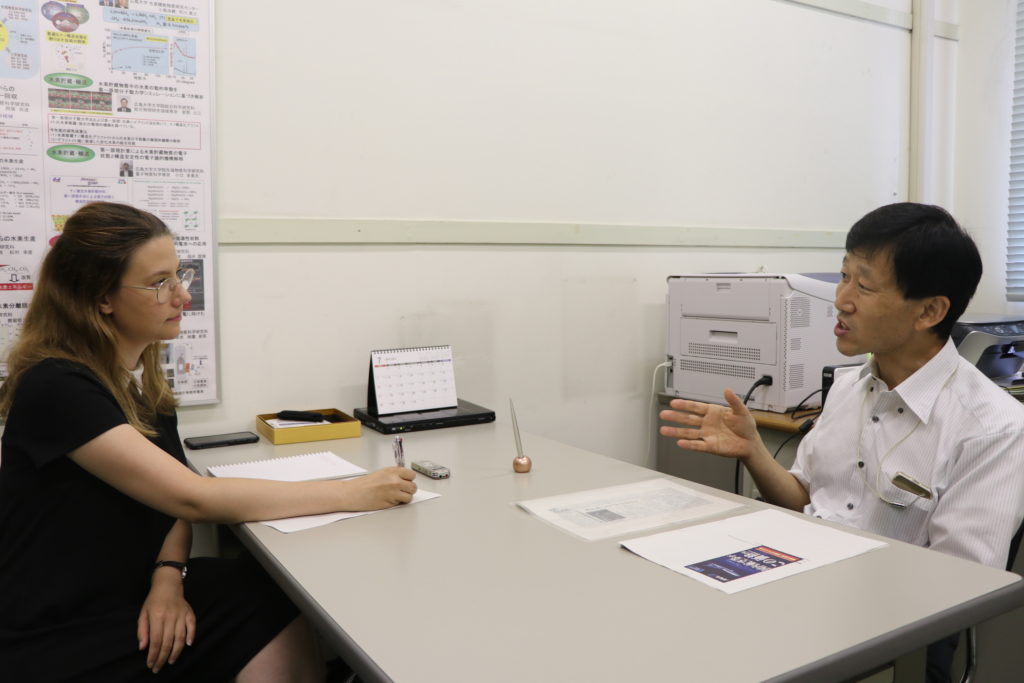
What's the next big thing in your field?
I am looking into making hydrogen using water and heat. We usually use high temperatures to decompose water, around 1000 °C but I feel it's too high. I think lowering it to 500 °C is possible and I am interested in this area. We can easily get low-temperature water. We have a lot of water in Japan! Too much water! *
Ammonia is also a very interesting hydrogen storage method. But we need to think about safety by reducing toxicity. Large amounts of ammonia can be toxic/unsafe. So now I am looking at ammonia storage materials to improve the safety.
How do you feel about working at Hiroshima University?
I have worked here for 13 years. My colleagues are great, and our group is a good group. Also, Hiroshima University is far from Tokyo which is a good thing. It is a very good place to focus on research.
If this university was located near Tokyo I could not research as much as there would be too much work to do outside of research!
You worked in Saudi Arabia for a time, how was that?
I worked in King Abdulaziz University in Jeddah, a place close to the Red Sea. They have lots of fossil fuels, so they don't feel as much pressure to find fuel as Japan does.
What advice do you have for today's students?
Students have to publish so many papers so new ideas are very difficult as their brains can be very conservative. They want to improve on small things to publish in a paper instead of making big, new discoveries. They should have an open mind! They should study continuously from basic to applied research.
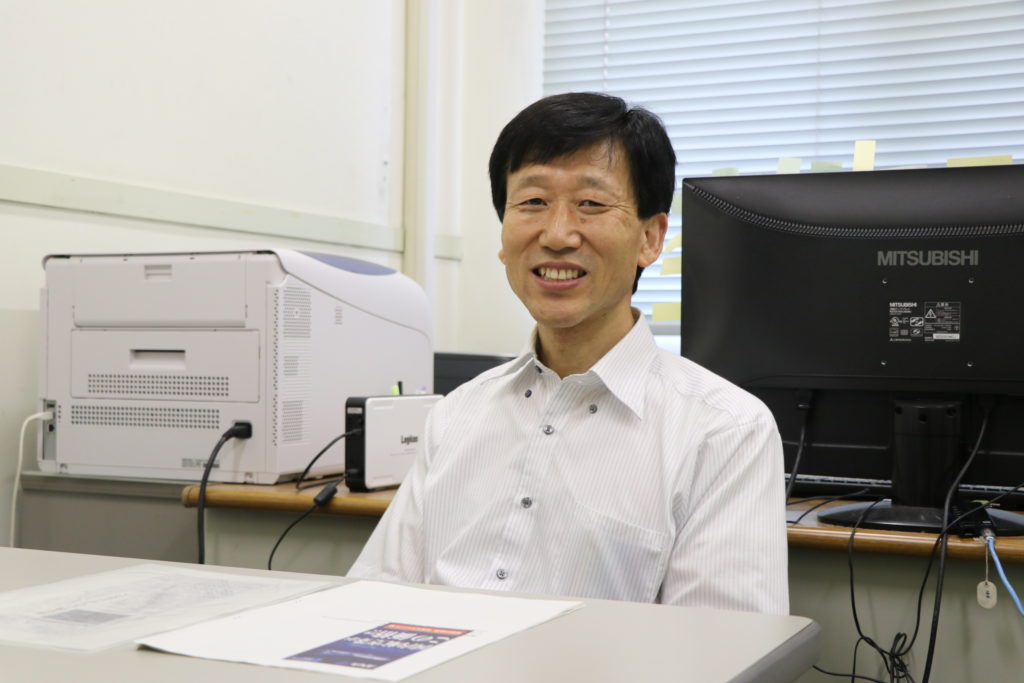
When not in the office how do you spend your time?
Usually, I go back to my home and sometimes I still do some work, like checking my email. I also like to explore other fields that are not related to my own. If I have free time I like to think about new things. I also like to take photos when I travel!
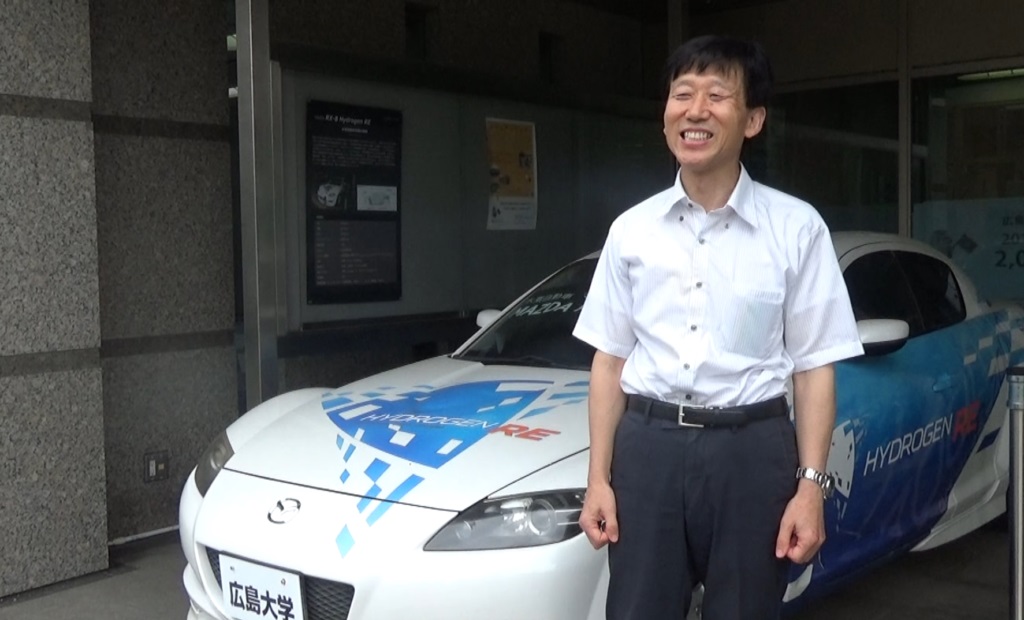
* The humidity the day of the interview was 71%, so there was a lot of water in the air!

 Home
Home